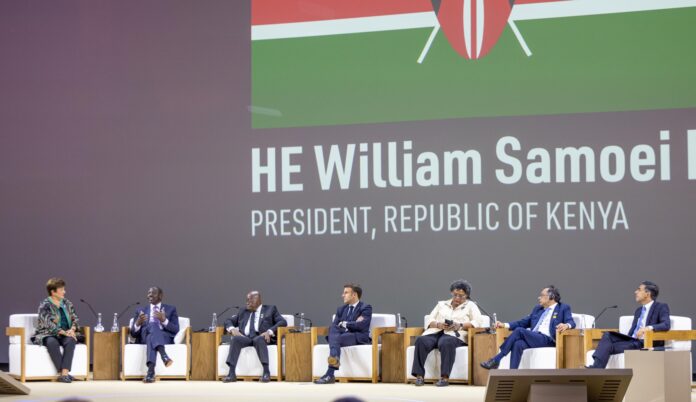Dubai, UAE: President William Ruto of Kenya has championed Africa’s transformative climate action, calling for comprehensive financial reforms that are innovative and responsive to the continent’s needs.
Ruto said there is an urgent need to align international financial institutions like the World Bank and International Monetary Fund (IMF) with Africa’s development context and climate goals.
Ruto spoke at the opening plenary of the 28th Conference of Parties (COP28) to the United Nations Framework Convention on Climate Change in Dubai, United Arab Emirates, as chair of the Committee for African Heads of State and Government and Climate Change (CAHOSSC).
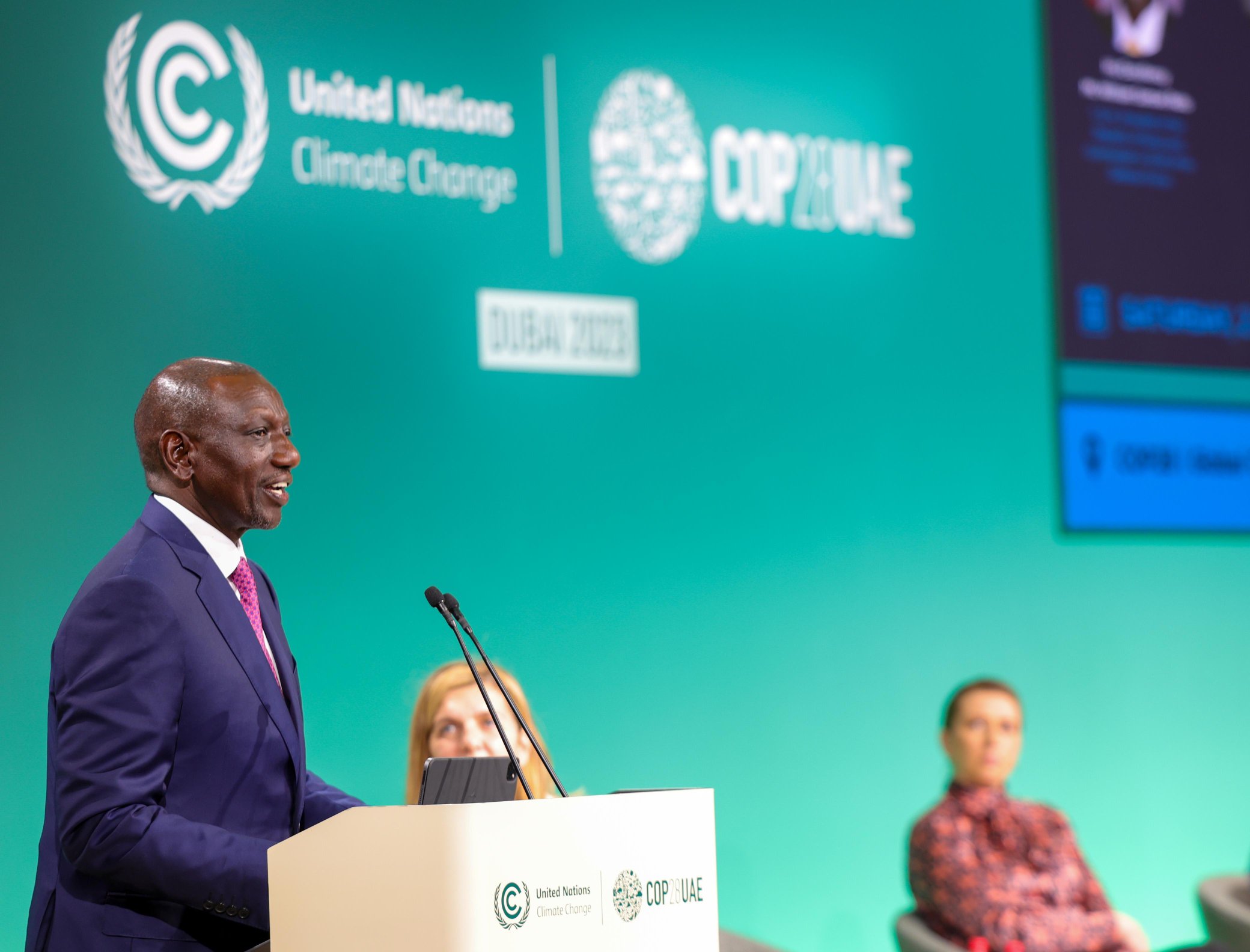 He addressed delegates, including COP28 President Sultan Ahmed Al Jaber, President of the United Arab Emirates Sheikh Mohammed Bin Zayed Al Nahyan, Secretary-General of the United Nations António Guterres, representatives from more than 200 countries, and many others.
He addressed delegates, including COP28 President Sultan Ahmed Al Jaber, President of the United Arab Emirates Sheikh Mohammed Bin Zayed Al Nahyan, Secretary-General of the United Nations António Guterres, representatives from more than 200 countries, and many others.
Changes in World Bank, and IMF operations
“The current climate financing ecosystem must be changed and restructured. It must be made to be more responsive and innovative to effectively address the challenges posed by high debt service pressure — especially in developing countries,” Ruto said while pushing for tangible climate action to confront the adverse effects of a warming planet.
While regretting that the world is still split into Global North and Global South even in times of dire climate crises, Ruto warned that the globe cannot afford to overlook Africa’s huge potential or ignore its pressing needs.
“No country should be forced to choose between its development and climate action, as it is possible to pursue the two together since economic growth and environmental sustainability cannot be mutually exclusive,” he said, calling for integrated global efforts that will broaden capital for both development and climate action.
Many post-colonial countries, especially from Africa, didn’t exist when World Bank, IMF were formed; they should have a say in their governance, Ruto said
Ruto said there is a need to expand revenue streams for additional climate financing, focusing on Africa as a source of solutions, not just a victim of climate change. He said Africa has great potential to offer solutions to the ongoing climate crises due to the continent’s huge youth population, immense green energy industrialization opportunities, and natural carbon sinks due to the large tracts of forests and arable land.
“The world must install clear, actionable roadmaps to turn Africa into a green powerhouse. This is not just essential but also an important ingredient for industrial decarbonization. A unified global effort will ensure that we mobilize capital for both our development and necessary climate action,” he said.
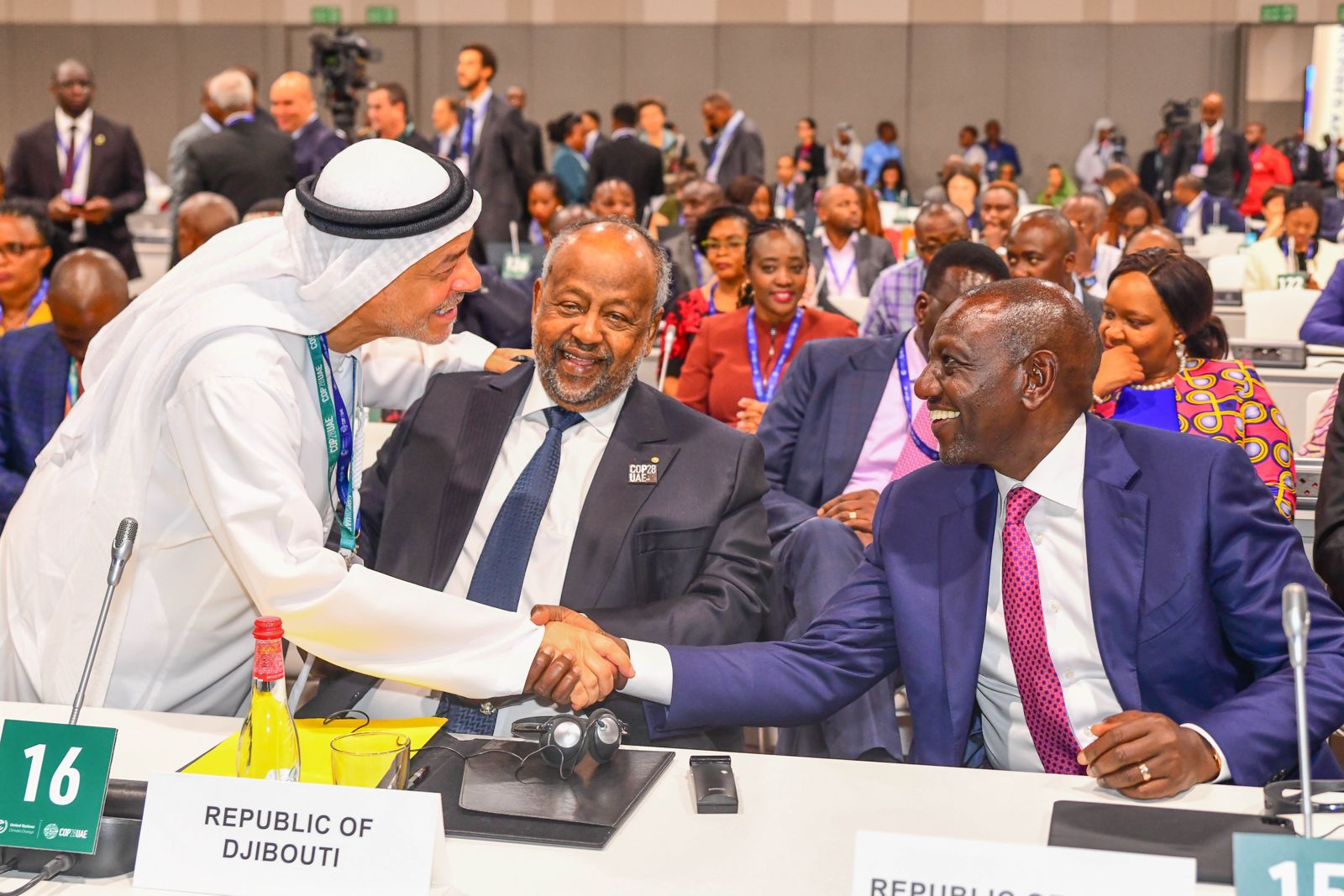 Adding “Besides unlocking resources committed to loss and damage frameworks, we must restructure the international financial architecture. We have to empower the World Bank and the IMF for more concessional funding to young and developing countries in Africa”.
Adding “Besides unlocking resources committed to loss and damage frameworks, we must restructure the international financial architecture. We have to empower the World Bank and the IMF for more concessional funding to young and developing countries in Africa”.
He said it’s high time world leaders agreed to reorganize the governance of the World Bank and IMF so that countries, especially from Africa, that didn’t exist during the inception of these global financial entities at least have a say.
“We have to speak to recapitalizing multilateral development banks and improve liquidity. We must de-risk investing in Africa and deal with exaggerated risks associated with African governments. And bring on board finances from the private sector,” said Ruto.
Ready for green industrialization but lack capital, technology
According to President Ruto, the transition to green energy stands as a pivotal solution to combat climate change not just in Africa but across the globe. He said shifting from fossil fuels to renewable sources like solar and wind not only mitigates greenhouse gas emissions but also fosters sustainability.
“Embracing clean energy technologies is crucial for a sustainable future, reducing reliance on finite resources and mitigating the adverse impacts of climate change. This transition not only addresses environmental concerns but also promotes economic growth, innovation and resilience in the face of global climate challenges,” he said.
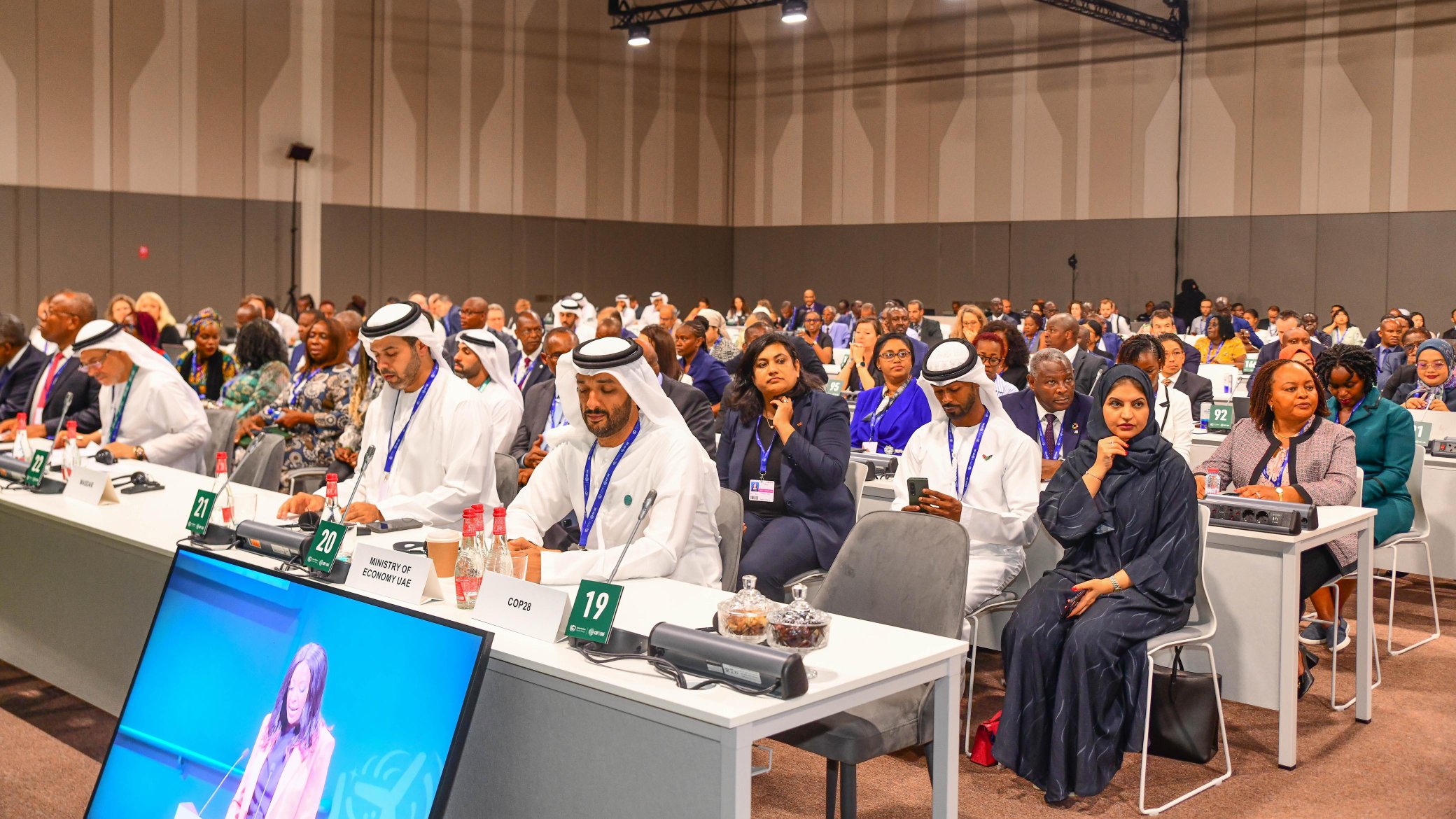 The Kenyan President called on world leaders to be deliberate and help tap into Africa’s huge green energy potential and opportunities by committing capital and technology, which the continent lacks.
The Kenyan President called on world leaders to be deliberate and help tap into Africa’s huge green energy potential and opportunities by committing capital and technology, which the continent lacks.
He also echoed the sentiments of public policy analysts and climate experts on the need for Africa to leverage the abundance of green raw materials across the continent due to increasing global demand for batteries, electric vehicles and renewable-energy equipment.
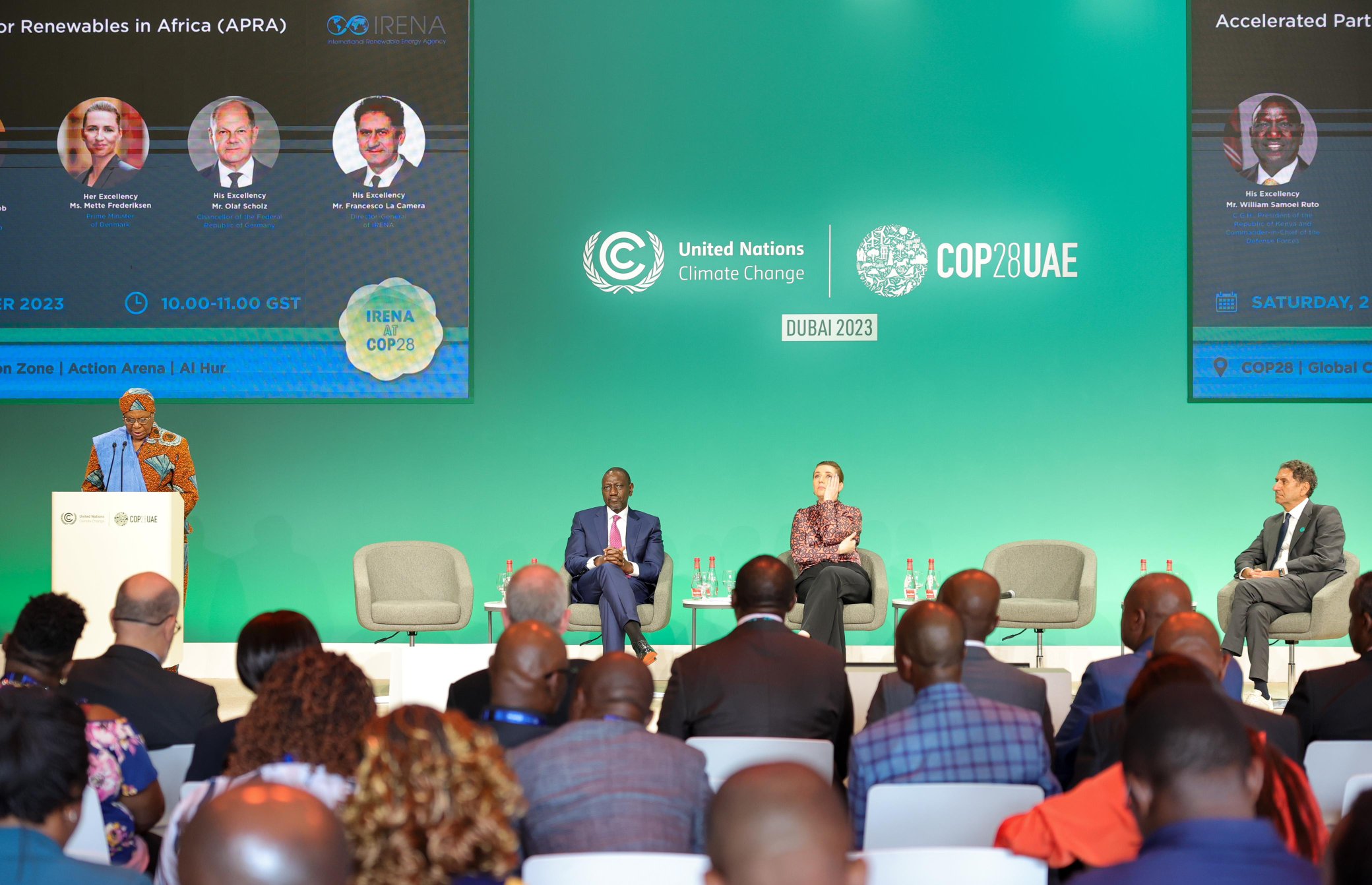 Harnessing the continent’s large deposits of minerals to foster green industrialisation will go a long way because it will enable the continent to meet development objectives while tackling the vagaries of climate change, he said.
Harnessing the continent’s large deposits of minerals to foster green industrialisation will go a long way because it will enable the continent to meet development objectives while tackling the vagaries of climate change, he said.
“Africa is ready for green industrialization, but the dream will not be realized without sufficient climate financing. Besides green energy, Africa has green raw materials to power the green industrialization, including bauxite (the aluminum-rich ore used for primary aluminum production), steel, and iron ore, among others,” he said.
Africa is keen on a new global climate financing framework. It is set to propose diverse strategies for raising more resources at COP28, including how the continent plans to leverage its vast natural assets through various taxes and improved carbon pricing.
This article was first published down to Earth.

